If there’s any topic that has impacted my life so deeply – and yet I’ve been putting off writing for over ten years – it’s religious trauma.
The topic of religious trauma is such an inflammatory topic, and one that has harmed so many people, that I’m going to try and approach it as delicately as I can.
Religious trauma is pervasive and more widespread than I believe most people are aware of. After all, the foundation of most modern societies are based on religious ideals, whether you live in the east or west.

Soul Work Compass Course:
Feeling lost, stuck, and trapped in repetitive cycles of pain? Discover your Soul's Compass to reclaim your purpose and find your path to freedom.
⭐️⭐️⭐️⭐️⭐️ "I have been a long-time subscriber to their website, and it’s one of my favorites by far ... It is rare to find this type of teacher." – Shar B.
So to get this out of the way before I begin:
Do I think all religion is evil? Am I an anti-theist? No. Religion serves a valuable function in society by emphasizing social connectedness, support, values, and higher ideals. For many people, religion is what makes life worth living, and it has helped them in their darkest times.
Do I believe all religious people are horrible? No. In fact, many religious people are some of the kindest and most generous souls you’ll ever meet.
Do I “hate” Christianity? (The religion I was brought up in.) No, I don’t hate Christianity. I can see the value in this belief system, and I respect and admire figures such as Jesus, Mary Magdalene, and the Virgin Mary (who I still feel an affinity with).
But here’s the thing:
Religion, with all of its underlying value, can easily become something destructive, abusive, perverted, and traumatizing.
In this article, I’m going to explore the dark side of religion as a religious trauma survivor, and also how to heal these wounds from a deeper perspective.
Want to get LonerWolf at the top of your Google search results?
Please note: In the interests of keeping this a safe space, and to respect my own personal boundaries, any comments deemed abusive, harmful, or proselytizing will be removed. Thank you for respecting the healing journeys of others.
Also, this article is written from an ex-Christian perspective, but it applies to anyone from any religion. If your unique experiences of religious trauma aren’t mentioned here, I apologize – they are just as valid. I can only write from what I have personally experienced.
Trigger warning: This article contains mention of sexual abuse, murder-suicide, self-harm, suicidal ideation, physical abuse, and other triggering topics. Proceed with caution.
In the interests of being trauma-sensitive, if at any point you feel overwhelmed by reading this article, please stop, take a break, and return to this page later (you can always bookmark it). And be sure to share this article with anyone who you feel might benefit.
Table of contents
What is Religious Trauma?
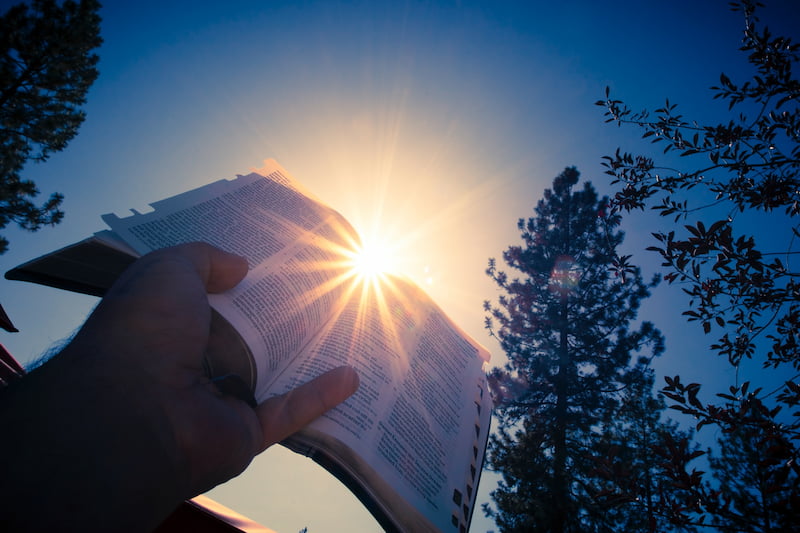
Religious trauma refers to the deeply felt ongoing mental and emotional suffering one experiences at the hands of a religious belief system. Experiencing religious trauma can happen to anyone of any faith at any point in their lives – and it can be cumulative or sudden. In other words, religious trauma can slowly build through a person’s faith journey or it can occur as a sudden shock such as through a public display of humiliation, sexual abuse, or another unexpected painful incident.
My Experience With Religious Trauma
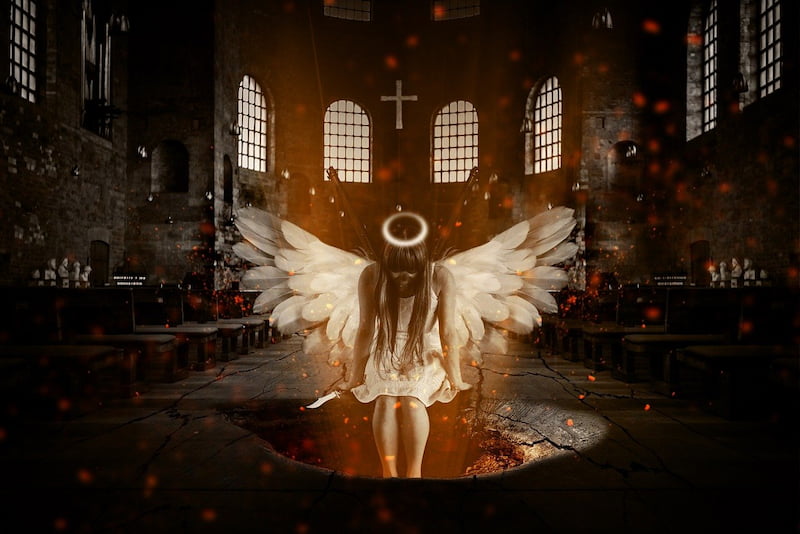
Religious trauma for me was a cumulative experience that reached its peak at the age of 19 when I decided to finally cut ties with the fundamentalist religion of my childhood (and unfortunately my blood family alongside it).
Since birth, I was raised in a fundamentalist Christian church known as the Church of Christ who prided themselves on a strict adherence to biblical tenets. I was taught that the CoC was the “one true church,” that those who belonged to it were “special and chosen,” and that all other beliefs (including other Christian denominations) and belief systems were false – and that those believing in them would end up burning in hell for all eternity.
I was indoctrinated with purity culture ideals of staying a virgin until marriage – that a woman wasn’t allowed to speak in church, couldn’t be a leader or “elder,” or do anything other than be a good homemaker and “submit” to her husband. I wasn’t permitted to cut my hair, celebrate Christmas or Easter (or any other “non-biblical” holidays), or be overly “worldly” because I was taught to believe that “Satan prowls around like a roaring lion looking for someone to devour.”
Imagine being taught, as a tiny little girl, that not only is the Devil always out to try and get you, but that if you’re “bad” in any way, you’ll suffer for all eternity in hellfire in the worst possible agony you could ever imagine? That’s a pretty fucked up thing to teach a young child.
Being indoctrinated at a very young age, for almost two decades with paranoid, bigoted, and fear-based beliefs about the world, it was no wonder that my mental health took a nosedive in my later adolescence. When I began to question why an “all-loving God” would send people to burn in hell forever if they didn’t “follow what He wanted,” my world began to crack apart. Just like in The Truman Show, my whole understanding of reality began to collapse and crumble beneath me. Reading the Bible three times over didn’t solve any of my problems either – it made the situation worse.
Would you like to save this?
Your information will never be shared.
I remember sitting in church during a sermon one Sunday, feeling the deeply disturbing sensation that my soul was slowly dying. Sudden thoughts of murder-suicide would flash through my fragmented mind as disturbing bloody images of stabbing the preacher over and over again – and then killing myself – would burst into my awareness. (I later learned that these thoughts signalled the emergence of my heavily repressed and rejected Shadow Self.)
This drive toward self-harm and suicidal-ideation began as a teenager and continued until a little after I left the religion, but thankfully it never resulted in anything serious.
There’s a lot more that I could share about enduring physical abuse (aka., “biblical” punishment) with a horse whip, spiritual gaslighting, emotional manipulation, social isolation, learning that my favorite Christian friend was a child molester, and the other nuances of an immature and destructive belief system – but I’ll try to keep this simple.
I don’t blame my parents because I know that they were trying to do the best they could with the level of awareness they had. They’re good people deep down with admirable qualities. I’m sure religion felt like a soothing balm for them and they wanted to instil some kind of values into their children. My childhood wasn’t all bad and there were certainly good parts, and wonderful qualities my parents instilled into me (like creativity and a good work ethic). But religion for me was a horror show that I’m still overcoming to this very day.
Unfortunately, the result of freeing myself from this religious trauma, also meant that I had to become a black sheep and cut ties with my blood family, who were conditioned by their beliefs to see me as a “heathen,” “traitor to the faith,” “sinner,” and so on.
I didn’t leave in a perfect way. I wish I had said goodbye to my siblings early on that morning I grabbed my bags and left. I wish I could have been there to support my little sister and meet my third sister who was born a few years after I left. But returning to that environment would mean deep self-betrayal, threatening my mental, emotional, and spiritual sanity. Exposing myself to the very situation that caused such deep trauma in me to begin with is not something I’m willing to do again.
My story is certainly not the worst out there – there are so many others who have experienced far worse than I have. And while I am a victim, I refuse to stay as one. I’m a survivor and now a thriver. And this deep pain is perhaps the main reason why I’m drawn to the symbol of the wolf, writing for and running this website, and exploring the shadows that obscure our Inner Light.
Religion vs. Spirituality

I just want to quickly clarify that this article is focused on religious trauma, not spiritual trauma. Religion and spirituality are two different paths. Here’s the difference, which I define in my article entitled Spirituality vs Religion:
Spirituality is connecting to the Divine through your own personal experience. It is primarily concerned with finding, experiencing, and embodying one’s true spiritual nature.
Religion is connecting to the Divine through someone else’s experience. It is primarily concerned with believing in, following, and obeying the rules created by a certain Deity or spiritual teacher.
If you think you fit into the spiritual definition more than the religious one, and you’re wanting to look more into spiritual abuse specifically, I recommend checking out the following articles:
- What Is Spiritual Bypassing? (Beware of These 10 Types)
- 15 Toxic Signs of a Spiritual Narcissist
- 11 Deceptive Spiritual Traps Sabotaging Your Growth
23 Signs You’re Experiencing Religious Trauma
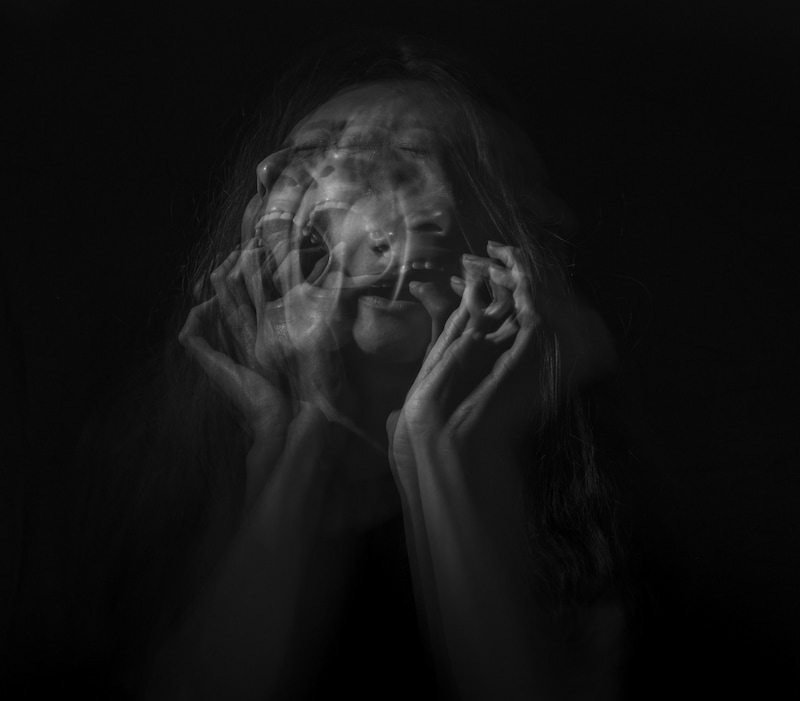
How do you know whether you’re experiencing religious trauma? Most likely, you’ll need to self-diagnose as this term isn’t listed in the DSM-5 (which is not saying that listing it as a mental disorder is actually always that helpful).
Trust in your own experience. These signs aren’t meant to “diagnose” you in any way (as I’m not a psychologist or mental health professional). But if you can relate to some of them, chances are that you do indeed suffer from religious trauma:
- Chronic feelings of unworthiness and inadequacy
- Persistent anxiety or panic
- Existential depression or melancholy
- Self-hatred or self-loathing
- Perfectionism
- Obsessive compulsive tendencies
- Weak sense of self
- Poor personal boundaries
- Nightmares or sleep disturbance
- Diminished social connections and loss of community
- Difficulty maintaining friendships, relationships, etc.
- Sexual dysfunction (excessive or under active sex drive)
- Persistent loneliness and feelings of abandonment
- Strong addictive tendencies
- Fear of experiencing joy or pleasure
- Difficulty with self-expression and speaking up
- Intrusive thoughts
- Rigid black-or-white thinking and troubles accepting alternative viewpoints
- Hypervigilance and feeling like one is being constantly watched and judged
- Inability to trust oneself and one’s gut instincts
- Difficulty trusting in other people and the Divine
- Struggles with being self-autonomous and making decisions
- Deep-seated feelings of shame and guilt about normal thoughts, feelings, and behaviors
This isn’t an exhaustive list of religious trauma signs, and if any others come up for you that aren’t listed, trust that they’re just as relevant as what I’ve shared above.
Examples of Religious Abuse
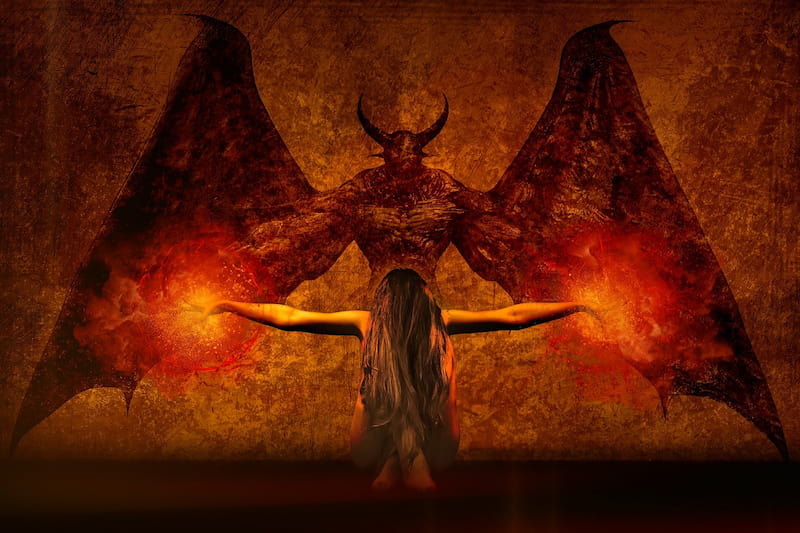
What about specific examples of religious abuse?
As I said at the start of this article, religious abuse can be both cumulative (aka., happen over a long period of time and in subtle/overt ways) or be sudden (due to a specific incident).
The examples of religious abuse below don’t cover all of the nuances of this complex beast, but I hope they give you a clearer idea of how religious abuse can appear:
For over 12 years, we've poured our hearts into creating free content on this website. Unlike many platforms, we believe this guidance should be accessible to everyone. If this post empowered you in any way, please consider making a donation to keep us going. Any amount (one-time or ongoing) makes a huge difference.
- A woman is shamed for dressing a certain way and told that she’s sinning against God for displaying her body.
- A man is judged and ostracized by his religious community for his attraction toward other men.
- A family cuts off their child when the child leaves the religion.
- A person seeks help from their religious elders about marital abuse, only to be told that it’s their lack of faith that is the problem, not the other party’s sexual/physical/emotional abuse.
- A child is physically, mentally, or emotionally punished for doing or saying something that is perceived to be against the parent’s beliefs.
- A religious community pressures and coerces an older person to donate more money than they can afford to give to their evangelical efforts.
- A charismatic religious leader uses his/her position of power to gain sexual favors in the name of “God.”
- A person is publicly humiliated for a perceived “sin.”
- A child is raped and the parents and religious authorities don’t believe his or her word, pretending it didn’t happen.
- A person is emotionally blackmailed and gaslighted into questioning their sanity when bringing up reasonable questions about certain religious beliefs.
- A mother experiences control and intimidation tactics when she stops exposing her children to a belief system.
- A father’s mental health problems are minimized or ridiculed by religious leaders, and he undergoes inadequate treatment from an incompetent “religious counselor.”
- A religious leader uses scripture to justify sexist, homophobic, transphobic, racist, ableist, or otherwise violent and destructive viewpoints.
Can you think of any more examples? If so, share them in the comments!
Religious Trauma and Spiritual Awakening
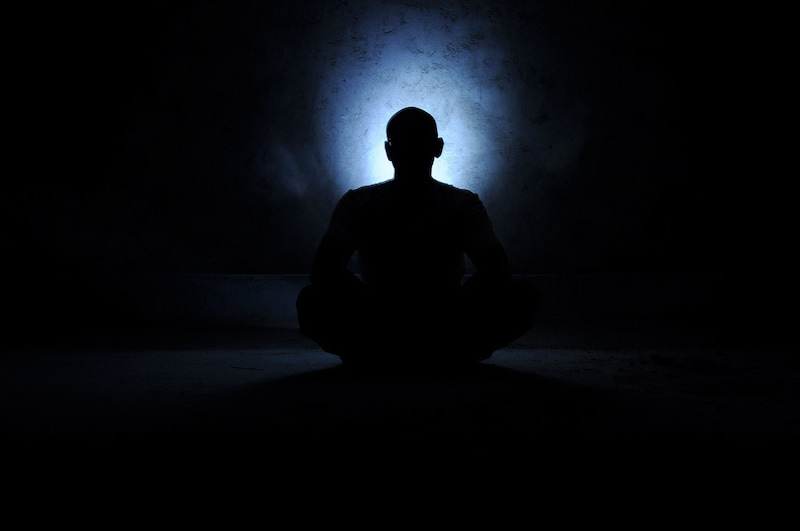
Going through religious trauma is what led to my own Dark Night of the Soul and subsequent spiritual awakening – and if you’re going through this experience, you might be called to the same path as well.
Spiritual awakening is what happens when we begin questioning our beliefs, habits, social conditioning, and everything that feels fake or false in our lives. A deep hunger and longing begins to burn within us to find truth, freedom, relief from suffering, and inner peace. We may crave to find what the meaning of life is, what our purpose is, and ultimately, who we truly are on a primordial level (our True Nature).
In other words, spiritual awakening emerges as a deep inner call from the Soul, demanding that we “wake up,” walk our own paths, and listen to our Soul’s calling to find Home.
Not everyone is ready for or interested in spirituality after going through the horrible roller coaster of religious trauma. In fact, many people feel drawn to atheism, and that’s fine. Sometimes atheism is the most healing and empowering path for a person.
But if you’re like me and you feel a calling from the Soul to find truth, freedom, and love, pay attention. Listen to and trust that inner call.
I recommend that you see the free Spiritual Awakening course we’ve created which can help to offer some grounded support and guidance during this tender and painful part of your life. You can also see my Soul searching article for more insight.
How to Heal From Religious Trauma

Healing from religious trauma is a process. I’m not going to give you some kind of gimmicky “7-steps-to-healing” shit because that’s not how it works.
Healing takes time, experimentation, vulnerability … and again, time.
What I offer below isn’t meant to be a map, just some helpful practices that have supported me in my own journey of healing religious trauma. Am I completely healed? No. I’m still healing to this very day. But I’ve learned a hell of a lot across the past decade. And I want to share that with you now:
(i) Journaling – simple but powerful
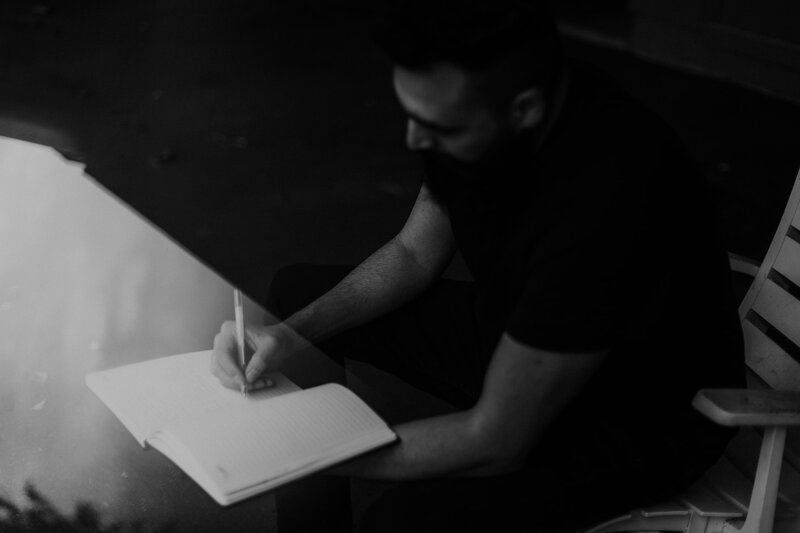
Undergoing religious trauma can be a lonely and isolating experience. Most people can’t understand or appreciate the intensity and complexity of how deeply harmful and disturbing to the psyche toxic religious conditioning can be.
One practice that helped me to keep some semblance of sanity during the darker parts of my religious journey was journaling. When I journaled, it felt like I was having a conversation with someone who actually understood what I was feeling – me.
There is a healthy and unhealthy way of journaling (aka., constructive vs. destructive), so be sure to read my article on How to Journal to learn how to journal in a beneficial way.
You can also check out this guided Self-Love Journal that I co-created a little while back, if you want some structured help.
(ii) Mindfulness and self-compassion

Mindfulness helps you to learn how to live in the present moment (instead of getting lost in thoughts about the past or future). And self-compassion helps you to learn how to be gentle, kind, and forgiving with yourself.
Self-compassion eventually leads into compassion for others, which is why it’s such a beautiful and healing practice.
The Self-Love Journal I mentioned above can help you develop more self-compassion. Otherwise, you can also check out the following resources:
- Self-Compassion: 9 Ways to Heal Your Deepest Wounds
- Self-Love: 23 Ways to Become a Doctor of the Soul
(iii) Spend lots of time in nature

Being in and amongst nature was the second practice that helped me tremendously when I was in the thick of religion and feeling slowly suffocated. Nature has helped me ever since.
The power of nature lies in how free, flowing, spontaneous, and open it is – qualities that, incidentally, mirror our Higher Self or True Nature (because in reality, we are nature).
Nature also teaches us in innumerable ways about the cycles of birth and death, light and darkness, and the essential non-dual nature of reality.
Researches on the benefits of time spent in nature have called this practice ecotherapy. So be sure to spend time watching, walking in, climbing, or engaging in nature in whatever way feels most enjoyable to you.
(iv) Make friends with your inner child
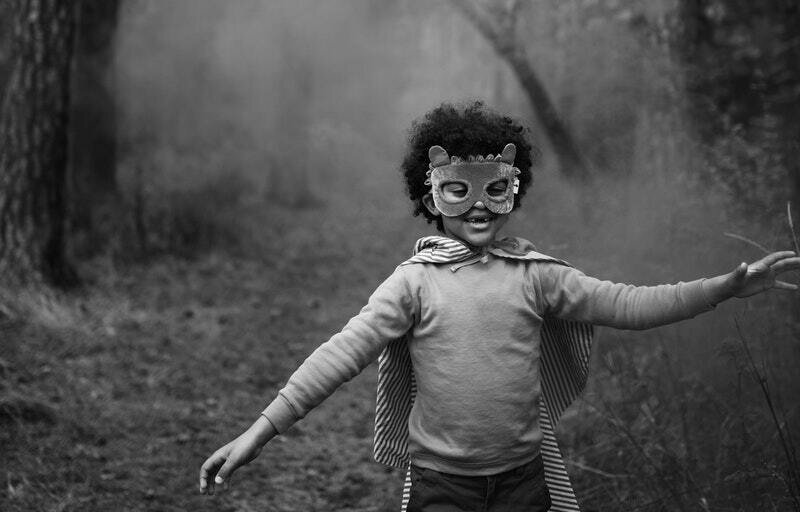
Before making friends with your inner child, I always recommend gaining some level of healthy self-worth because inner child work is an extremely tender and vulnerable practice. If you go into this practice hating yourself, your inner child will never feel safe enough to come out and be embraced. So remember, self-love precedes inner child work.
With that said, working with my inner child was (and is still) one of the most nourishing ways of reclaiming a sense of creativity, joy, adventure, and even long lost wisdom.
Your inner child carries so much love and potential, and s/he is a crucial part of you. But at the same time, your inner child also carries so much unprocessed pain. And when it comes to religious trauma, chances are that your inner child was the one that copped the most suffering.
I recommend working with a trained trauma-informed therapist when learning how to heal your inner child – that helped me greatly. Journaling and mirror work also supported my journey of working with and reclaiming my inner child.
You can see the Inner Child Journal that I’ve co-authored if you’d like some support with this deep work (feel free to use it alongside therapy as well).
(v) Mindful shadow work
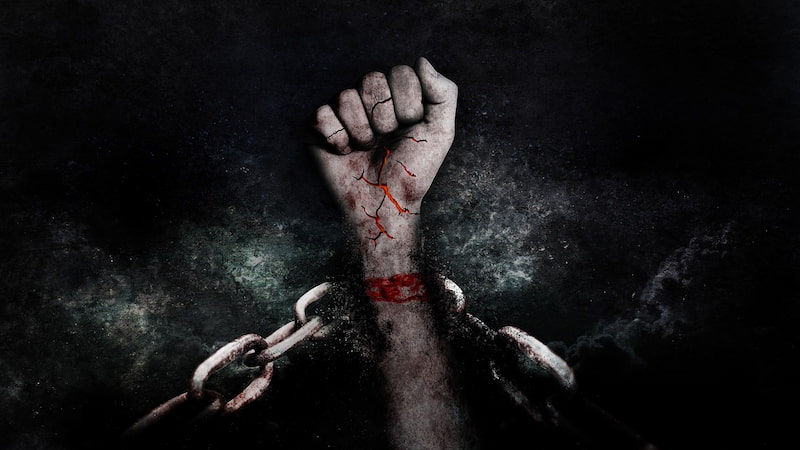
There are three main forms of inner work that I write about on this website, and they are:
- Self-Love
- Inner Child Work
- Shadow Work
Self-love comes first, then inner child work, and finally shadow work. So the same warning applies to shadow work as with inner child work: pleasure ensure that you have a stable sense of self-esteem before you embark on this work. Loathing yourself and then deciding to explore your shadows (or dark side) is a recipe for disaster and retraumatization. So take heed and proceed slowly and mindfully.
Shadow work is the practice of exploring anything that obscures your inner Light – that could be false beliefs, core wounds, old programs, lost inner parts, or any part of you that feels contracted or blocked.
What is so vital and powerful about shadow work is that it can help us at any point of our life journeys. No matter what degree of awakening we’ve experienced, we always need to be mindful of our shadows because the reality is that we are both human (aka., imperfect) and divine.
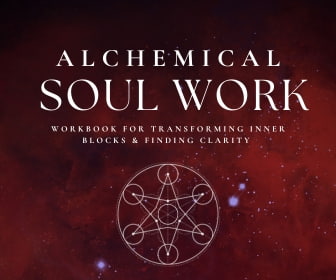
Stuck in the same old story?
Write a new one. The Alchemical Soul Work Workbook empowers you to become the alchemist of your own life. It provides the tools to dissolve old narratives and transform pain into power, giving you the freedom to create a future that is authentically yours.
If you’d like to explore shadow work, I recommend checking out our highly rated Shadow Work Journal.
(vi) Internal family systems – or working with your inner parts

Internal family systems (IFS) is a form of psychotherapy which I love and highly recommend to those experiencing religious trauma.
IFS works on the premise that we are all composed of many different parts – happy, sad, angry, joyful, creative, sad, childlike, wise, and silly parts (and so on). At the center of our being is a wise and compassionate inner force known as the Self (capital ‘s’), which I love because it’s a form of therapy that welcomes the spiritual into the picture alongside psychological elements.
You can read more about IFS in my Internal Family Systems article. I also recommend looking into getting an IFS therapist if you’d like to go deeper into this work.
(vii) Non-duality – or seeing through the separate self
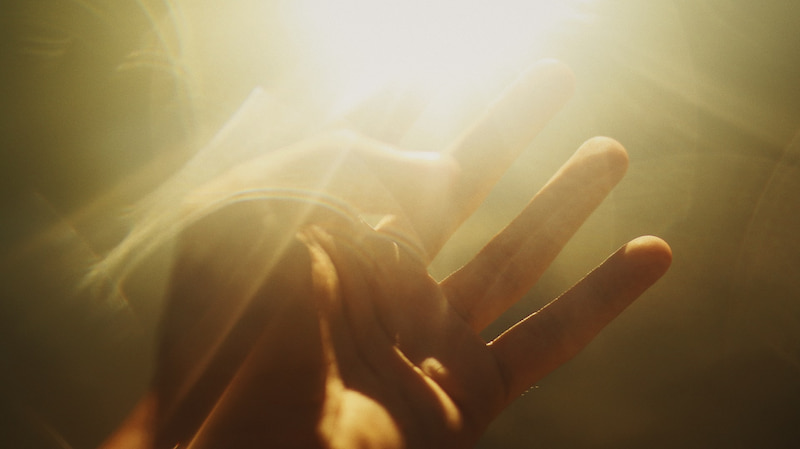
Non-duality is an eastern philosophical and spiritual teaching that suggests that everything is ultimately One, and that dualities such as “self/other,” “light/dark,” “subject/object,” are ultimately constructs of the mind.
Furthermore, the self that we take ourselves to be – the “I” – is actually an illusion based on a misunderstanding of who we truly are at a fundamental level.
I’m not saying that non-duality as a philosophy and path will be beneficial to you – but for me personally, it has helped me to see that the separate self, the ego, is at the root of suffering. And unlike religious teachings that divide the world into “us/them” “good/evil” and so on, non-duality encourages a non-judgmental approach to life in which we see the underlying unity and Oneness beneath all beings.
Non-duality is also a path that is said to open a doorway to freedom from suffering via Self-Realization or spiritual illumination.
If you’d like to explore this topic more, you can see my article on Non-Duality.
Other Practices That Have Helped:
- Meditation
- Artistic self-expression
- Exploring inner archetypes
- Balancing the root and sacral chakra
- Working with a trauma-informed therapist
- Learning basic self-care
- Learning how to set personal boundaries
- Prayer (it doesn’t have to be religious!)
There are many other practices (this whole website is a resource open for your benefit), but these are some that come to mind. And I hope they are of help to you.
***
Religious trauma is underrepresented and isn’t as explored or covered as I’d hope it to be – hence the need for this article.
I hope you know now that (1) religious trauma is valid, (2) what you’re experiencing is normal and you’re not alone, (3) there is a way through this pain, and (4) religious trauma can actually be a doorway to a deep inner path of spiritual awakening.
What has your experience with religious trauma been like? If you feel comfortable with sharing, you’re welcome to do so in the comments below.
Two paths to inner transformation – here’s how I can help you go deeper:
1. The Soul Work Compass Course: Feeling lost or stuck in repetitive cycles of pain? The Soul Work Compass Course is your guide to reclaiming your true purpose. In this deep yet practical journey, you’ll learn how to heal core wounds and create a tangible "Soul's Compass" to navigate life with clarity. Enroll now and find your True North!
2. The Inner Work Journal Bundle: Ready for deep transformation? This bundle includes three powerful journals – Self-Love, Inner Child, and Shadow Work – with 150+ prompts to heal wounds, integrate your darkness, and experience bone-deep change. Digital & printable. Print unlimited times.


I feel as if my whole life I will be trying to heal from the church. It started when I was 15 and I had to pray and pray for my Dad who had cancer that God wouldn’t send him to hell because he didn’t go to church. Then I spent my entire life in a constant state of fear. I was continuously scared about hell. Got put of so many antidepressants to deal with the fear. I tried so hard to fit into church but whenever I asked any questions I always got told off. One time I said that I thought that eventually everyone would get to heaven, that we were still learning and I got my head snapped off by “thats not what the Bible says”. I hate writing this because it brings up so much pain. Even when I was on antidepressants to stop the fear, my pastor told my partner that I was the most manipulative person he had ever met. I didn’t understand how uncaring that was as I has attempted to end my life just to get rid of the constant fear. It was horrible. By the way I am a lot better than I was back then but its taken YEARS and I lost all those years and it affected my health so badly too.
Wow! I’ve come so far on my journey since leaving the church. And I’m SO PROUD of the work I’ve done. But reading your list, I was like , “shit, yep..still got that one. Shit, yep…still got that one too” hahaha
Man, what an amazing article!! I have never seen anything like this before, and you have no clue the massive amount of validation that I felt while reading it! So, from the bottom of my heart, thank you!! I know that wasn’t easy to do.
I come from a family with not 1, but 2 (TWO) Southern Baptist preachers. My maternal and paternal grandfathers were both preachers. And they were actually both wonderful, intelligent, loving men! The rest of the family made up for it though. My parents divorced when I was 2. I found out like 3 nights ago (I’m 38 now), mom only married my dad so she could get out of her parents’ house, bc she and my aunt were getting that good, slow burn trauma on the daily. But of course, mom wound up right back there, just with a kid in tow this time. We all lived together for a few years and then my grandparents moved into the parsonage, and mom and I stayed at the family house.
Eventually, mom started dating her highschool sweetheart. His family and hers had met through church and were all very close. Mom had NEVER gotten over him.
I’m not sure exactly when (it’s definitely still blocked), but best guesstimate is sometime between 1st & 3rd grade, the sexual abuse started. It happened 3-7 days/wk (every time he’d come to the house) for the next 10-12 yrs (until I started dating boys). I swore at a very young age that I would take that info to my grave. There was NO WAY that I could be the bad guy and blow up our family.
All the while, I’m also getting all the shit from church and my family. Just the normal grinding down of the individual, overbearing and controlling, conditional love if I didn’t act the proper way, completely robbing me of my natural instincts and ability to trust or believe in myself in any capacity, while weirdly spoiling me to the point that I had no actual life skills when I moved out at the age of 20. And in that 5 yr or so gap (15-20), I had somehow repressed the abuse.
I unknowingly repeated my mom’s history, and found the only way out I had, and moved in with my boyfriend. Within 72 hrs, I was getting drunk for the first time, and ALL the memories came flooding back instantly. Over the next 4 years I became a full-blown alcoholic in a toxic and mentally/ emotionally abusive relationship. I had left the church, left my family, I didn’t see or speak to any of them, and they would come banging on my door, screaming and yelling regularly. They were relentless. And of course, EVERYONE in our town thought I was a wild hellion and knew I’d gone off the rails and was a “bad person”, bc out of sheer “love” my family was destroying my name ..in the name of “prayer requests”.
So.. one day, I finally decided to talk to my grandparents. They wanted to know why I was I was acting this way, and told me that I was killing my mother, bc I was making her so sick with worry. I told them in one blunt sentence that I’d been molested for years and who had done it. And my grandmother’s only response was, “The bible tells us not to judge, and that we need to forgive. So we just need to forgive him.”
In an effort to save face, my “perfect” family spun their own tale, and the new talk of the town was how my awful boyfriend had coaxed me into making all this up so that we could get money…..18yrs later, mom’s still married to him and still drinking that Christian KoolAid
“Reading the Bible three times over didn’t solve any of my problems either – it made the situation worse.” That matches up with my situation. I spent decades reading the Bible in various ways: always in church as part of worship, in my private prayer life in accordance with a church calendar of daily readings, cover-to-cover three times and on an hoc basis as things came up.
The more I read, the more I was uncomfortable with the contents of the Bible, how my church used it and, more generally, with Christianity. Those decades of Bible reading and church life left me with an internal dissonance between what I did (worship, prayer, doctrinal commitment) and what I thought (that Christianity isn’t the Truth of the Universe and is, rather, full of contradictions, mythological stories, human speculations often enforced by political powers and otherwordly visions that seem to have come from altered states). “Christianity is so strange that it can prove itself false by its own teachings,” is how I put the results of my christian contemplation in another forum.
I paid a personal price for living with that kind of internal division, including how it divided me from family and friends when I acted on my own assessment of Christianity and the churches I went to. I still struggle to accept the validity of my own thoughts, instead ruminating over them as though I am convincing myself of what I am already convinced of! I recognize the difficulty believing what I believe stems from church teaching that I cannot trust my own thoughts but must seek to put on the mind of christ. I don’t believe that now but, on another level, that imperative to seek christ is part of me, regardless of what I believe.
I’ve found that body-based practices really help me separate myself from the christian thoughts that have been in my mind since before I was even conscious. Endurance sports, mediation, mindful sexuality, all help ground me into my physical body and orient my mind to my actual experience. It’s an ongoing work.
Hi. I am a Christian. First of all, in no way is my intention to invalidate anyone’s experience, including the author’s, or mine, as I have also experienced religious trauma.
I have a genuine question, and I would love for someone, author included, to give me their thoughts on it without judgement. Why is it that it is deemed okay to cut ties with people over certain beliefs, such as voting for a different political party, but when it is done because of different religious beliefs, it’s deemed abuse?
I may or may not be in that exact religion right now, I have to wait a few more years before I can leave but I can’t wait.
Ola. Há uns 25 anos tive um relacionamento com um namorado evangélico. Éramos adolescentes, eu tinha 17 anos e ele quis que eu conhecesse a religião e fomos em um culto. Ao final, ele questionou se eu ia me converter já que agora eu sabia da verdade. Ele e os familiares começaram a me bombardear dizendo basicamente que eu ia pro inferno só pelo fato de ser católica. A partir dai, comecei a enxergar tudo como se Deus apontasse pra mim, questionar tudo que havia aprendido, sentia como se TUDO ao meu redor tivesse uma lente de dor. Eu vivia anestesiada com a culpa. Hj estou melhor depois de remédios e terapia, mas sempre me pego limitada em certas questões e de vez em quanto eu volto pra aquele passado como se tivesse e sentisse tudo exatamente. Desenvolvi crises de ansiedade e depressão e toc tbm. Gostaria de saber se é assim que vc se sente tbm. É muito importante pra mim me identificar com alguém que passou por isso. Pois o julgamento externo é muito cruel, já que não vêem nossa ferida
Hi. HELP!!! THANK YOU FOR WRITING THIS!!!!
I have definite cultural/religious crap hoin on. Something happened that pushed too hard.
Was this abuse?
I had given up on formal religion..my whole self hated it. So I went to a place where an esoteric yoga of the mind person taught and seemed to be training a co teacher….
They would come up to me and say nothing or something specific (it was odd for over 2 years!!!!) I think they were doing “triggering” … would any person do well being triggered for 2 years??
Then..when I was at a certain members home the co teacher would ask to talk to me or go for a walk…but say nothing..lots of word fumbling. I think the “more advanced students” were looking at my nervous 😓 energy as a lab rat teaching tool …
Then I the teacher told people in class true and untrue things about me to get me over my fear of others thoughts about me/gossip…asshat.
THEN…in class they/teacher looked at me and said “my master told me I would be betrayed “…(as in if you talk about my teaching techniques my master and the while spiritual world and the class and the town. and god and jesus aand Powerful esoteric masters)will punish you/me…I have been living in fear of esoteric master punishment for a looooonnng time..
My health began falling apart after this.
… .. CLOSE TO MY LAST DAY THERE THEY TOLD ME “YOU’RE GOING TO FALL APART”
I have been an isolated mess for over 20 years
I made some typing errors.
“Then I the teacher told….” is meant to be “Then the teacher told…”
There was a nice middle-aged priest in my parish… Some of my, let’s say, spiritual questions (I was 13-14) he’d answer, and for some he’d sigh and say, “I don’t know.”… When I confessed I had smoked, he said, “Your body is a flower… don’t harm it.” … A kind and honest priest. :-)
Btw, I liked your murderous ideation of stabbing the preacher ;-)